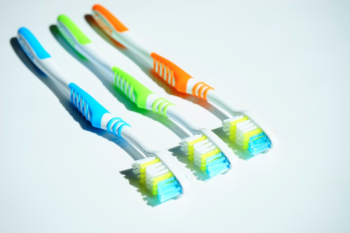 For decades, scientists have been studying the links between periodontal (gum) disease and heart disease. Over the years, research has continued to find strong correlations between these two inflammatory conditions. While there is work yet to be done, we have already discovered connections that may influence how we approach health care in the future. Consider a few key components of the gum disease – heart disease relationship.
For decades, scientists have been studying the links between periodontal (gum) disease and heart disease. Over the years, research has continued to find strong correlations between these two inflammatory conditions. While there is work yet to be done, we have already discovered connections that may influence how we approach health care in the future. Consider a few key components of the gum disease – heart disease relationship.
Gum disease and heart disease share many of the same risk factors. Some of these include smoking, obesity, stress, nutrition, and more. According to the Centers for Disease Control and Prevention (CDC), more than 70% of Americans aged 65 and older currently have periodontitis – the most advanced form of gum disease. Recent studies have suggested that patients with heart disease may have increased likelihood of developing gum disease as well.
Likewise, gum disease increases your risk of heart disease. This may be due to the higher rates of inflammation in your body that occur with gum disease. If you already have a heart condition, gum disease may worsen your illness. One study published in 2015 noted an increase in the severity of heart attacks in patients with gum disease. Heart disease is currently the leading cause of death for both men and women in the U.S.
Treating gum disease may decrease your odds of contracting or worsening heart disease. A study published in 2014 found that patients who were treated for gum disease had fewer hospitalizations and lower health care costs related to heart disease. While more research is needed to determine the exact nature of this connection, it is clear that avoiding or treating gum disease can be considered an important part of prevention and treatment for heart disease, as well.
You can reduce your risk of serious health complications from heart disease or gum disease. Healthy diet, regular exercise, good dental hygiene, and avoiding tobacco can all help reduce to your risk of developing one or both of these conditions. See your doctor and our dentist regularly for preventive care and treatment.
To schedule your periodontal screening, contact our office today.


 We often have visitors to our office ask about solutions for fixing stained teeth or filling in gaps between teeth. We sometimes suggest veneers. Veneers are one cosmetic option available for correcting your smile. Here’s what you should know about veneers, and whether they are right for you and your smile.
We often have visitors to our office ask about solutions for fixing stained teeth or filling in gaps between teeth. We sometimes suggest veneers. Veneers are one cosmetic option available for correcting your smile. Here’s what you should know about veneers, and whether they are right for you and your smile. You may not realize it, but you could be at risk of developing an unsightly medical condition known as hairy tongue. While it is harmless in most cases, hairy tongue is still an unpleasant ailment. The causes are not always completely known, but practicing good oral hygiene at home and visiting our dental office for cleanings can help prevent the issue. Here’s what you need to know.
You may not realize it, but you could be at risk of developing an unsightly medical condition known as hairy tongue. While it is harmless in most cases, hairy tongue is still an unpleasant ailment. The causes are not always completely known, but practicing good oral hygiene at home and visiting our dental office for cleanings can help prevent the issue. Here’s what you need to know. A happy smile is a healthy smile! There are a number of steps you can take to keep your smile healthy by reducing your risk of developing tooth decay. Here are a few suggestions from our team.
A happy smile is a healthy smile! There are a number of steps you can take to keep your smile healthy by reducing your risk of developing tooth decay. Here are a few suggestions from our team. Do you ever think about your toothbrush? You use it twice a day, but how much do you know about it? We’ve compiled a list of interesting toothbrush facts. The next time you brush, consider these bits of trivia.
Do you ever think about your toothbrush? You use it twice a day, but how much do you know about it? We’ve compiled a list of interesting toothbrush facts. The next time you brush, consider these bits of trivia.



